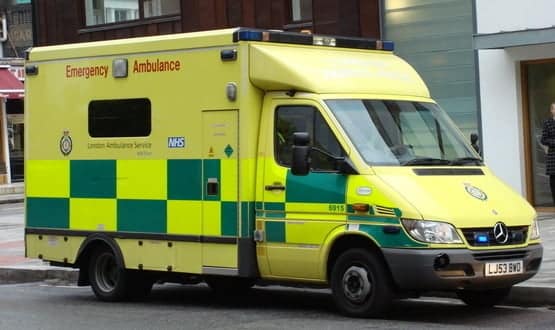London Ambulance IT down for five hours on NYD
- 3 January 2017

An IT error on one of the busiest nights of the year reduced London’s ambulance service to logging emergency calls with pen and paper.
The London Ambulance Service NHS Trust’s control room was affected by the problems between 12:30am to 5:15am on New Year’s Day.
The trust is the busiest emergency ambulance service in the UK.
In a statement on New Year’s Day, Peter McKenna, deputy director of operations, said the control room staff had been “trained to operate in this way”, and continued “to prioritise our response to patients with life-threatening conditions, using the same triage system as usual”.
He said that additional clinicians were on duty to provide clinical advice if needed.
The trust uses CommandPoint call handling software and an Oracle database.
A spokesperson for the trust told Digital Health News, it is “looking into what happened and it is too early to predict what the findings will be”.
The trust would not comment on the number of calls or patients affected but the spokesperson said: “As a paper based system is not as efficient as a computer based system, the time taken to process information increased”.
“We are very sorry to anyone who may have waited longer."
It is not the first time the trust has had to resort to paper during peak demand.
On Christmas Day in 2013, the trust call management system went down for five hours, forcing them to record emergency calls on paper.
The trust has had issues with its IT systems stretching back decades. The worst occurred in 1992, when faults in a newly deployed computer aided dispatch software reportedly lead to delays of up to 11 hours and was linked to 30 deaths.
Since then, it has suffered periodic problems. In 2006, the system crashed nine times in two weeks due to a software upgrade.
In March 2012, the trust went live with CommandPoint following a troubled false start where the switch-over caused so many problems the control room was forced to revert to paper.
During the 2017 New Year's revelries, 162 patients were treated in the central London event area by the ambulance service and St John Ambulance, with most suffering alcohol related illnesses.
On 30 December, NHS chief executive Simon Stevens told a national newspaper that the NHS was being treated as the “National Hangover Service”.
Last year’s New Year’s Day saw 43% of incidents at 2am related to alcohol, and was one of the trust’s busiest days of 2016.
The trust is the only London wide NHS trust covering 620 square miles, and employs about 5000 staff.
The Care Quality Commission rated the trust “inadequate” in its last report in November 2015, with problems including insufficient paramedic staff and a reported culture of bullying and harassment in parts of the trust.




